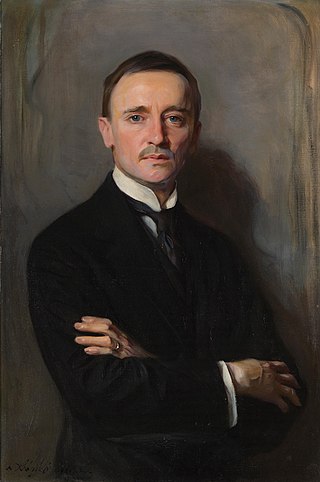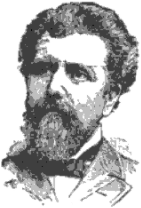
Calvin Coolidge was an American attorney and politician who served as the 30th president of the United States from 1923 to 1929.

John William Ferrell is an American actor, comedian, writer, and producer. Ferrell is known for his leading man roles in comedy films and for his work as a television producer. He has earned four Emmy Awards and in 2011 was honored with the Mark Twain Prize for American Humor. In 2015, he received a star on the Hollywood Walk of Fame and was named the best comedian in British GQ.

The Meuse–Argonne offensive was a major part of the final Allied offensive of World War I that stretched along the entire Western Front. It was fought from September 26, 1918, until the Armistice of November 11, 1918, a total of 47 days. The Meuse–Argonne offensive was the largest in United States military history, involving 1.2 million French, Siamese, and American soldiers. It is also the deadliest campaign in the history of the United States Army, resulting in over 350,000 casualties, including 28,000 German lives, 26,277 American lives and an unknown number of French lives. American losses were worsened by the inexperience of many of the troops, the tactics used during the early phases of the operation and the widespread onset of the global influenza outbreak called the "Spanish flu."

Arthur Bliss Lane was a United States diplomat who served in Latin America and Europe. During his diplomatic career he dealt with the rise of a dictatorship in Nicaragua in the 1930s, World War II and its aftermath in Europe, and the rise of the Soviet-installed communist regime in Poland.

Marie Corinne Morrison Claiborne Boggs was a politician who served as a member of the U.S. House of Representatives and later as United States Ambassador to the Holy See. She was the first woman elected to Congress from Louisiana. She was also a permanent chairwoman of the 1976 Democratic National Convention, which met in New York City to nominate the Carter-Mondale ticket. She was the first woman to preside over a major party convention.

The Paul H. Nitze School of Advanced International Studies (SAIS) is a graduate school of Johns Hopkins University based in Washington, D.C. with campuses in Bologna, Italy and Nanjing, China.

Frank Comerford Walker was an American lawyer and politician. He was the United States Postmaster General from 1940 until 1945, and the chairman of the Democratic National Committee from 1943 until 1944.
Piero Gleijeses is a professor of United States foreign policy at the Paul H. Nitze School of Advanced International Studies (SAIS) at Johns Hopkins University. He is best known for his scholarly studies of Cuban foreign policy under Fidel Castro, which earned him a Guggenheim Fellowship in 2005, and has also published several works on US intervention in Latin America. He is the only foreign scholar to have been allowed access to the Cuba's Castro-era government archives.
Robert Hugh Ferrell was an American historian and a prolific author or editor of more than 60 books on a wide range of topics, including the U.S. presidency, World War I, and U.S. foreign policy and diplomacy. One of the country's leading historians, Ferrell was widely considered the preeminent authority on the administration of Harry S. Truman, and also wrote books about half a dozen other 20th-century presidents. He was thought by many in the field to be the "dean of American diplomatic historians", a title he disavowed.

William Richards Castle Jr. was an American educator and diplomat. He rose rapidly to the highest levels of the United States Department of State and took a strong interest in Pacific issues, in part because of his family's background in Hawaii.

William Lindsay Scruggs was an American author, lawyer, and diplomat. He was a scholar of South American foreign policy and U.S. ambassador to Colombia and Venezuela. He played a key role in the Venezuela Crisis of 1895 and helped shape the modern interpretation of the Monroe Doctrine.
Ross Gregory is an American historian.
James Allen Ferrell is an American lawyer and politician serving in his third term as the Mayor of Federal Way, Washington since 2014. The Mayor is a non-partisan office holder. Ferrell previously served ten years on the Federal Way City Council and was the prime mover behind the city's transition from a Council–Manager form of city government to a Mayor-Council or "Strong Mayor" government. Federal Way is currently the 9th largest city in the state of Washington. with a population of 101,300 residents. In the 2022 general election, Ferrell ran for the King County Prosecuting Attorney position losing to Leesa Manion, the first woman and Korean American King County Prosecutor.

Calvin Coolidge's tenure as the 30th president of the United States began on August 2, 1923, when Coolidge became president upon Warren G. Harding's death, and ended on March 4, 1929. A Republican from Massachusetts, Coolidge had been vice president for 2 years, 151 days when he succeeded to the presidency upon the sudden death of Harding. Elected to a full four–year term in 1924, Coolidge gained a reputation as a small-government conservative. Coolidge was succeeded by former Secretary of Commerce Herbert Hoover after the 1928 presidential election.

Peace in Their Time: The Origins of the Kellogg-Briand Pact is a 1952 book by historian Robert H. Ferrell tracing the diplomatic, political and cultural events in the aftermath of World War I which led to the Kellogg–Briand Pact of 1928, an international agreement to end war as a means of settling disputes among nations. Ferrell's first book, Peace in Their Time elaborates on and extends Ferrell's 1951 Ph.D. dissertation, The United States and the Origins of the Kellogg-Briand Pact, which won Yale's John Addison Porter Prize for original scholarship. Peace In Their Time itself went on to win the American Historical Association's 1952 George Louis Beer Prize for outstanding historical writing. Ferrell would go on to become a professor at Indiana University and one of the most prominent historians in America, and wrote or edited more than 60 other books on historical topics. Historian Lawrence Kaplan praised Peace in Their Time as a harbinger of the high quality of Ferrell's subsequent career, stating that it "contained the special qualities that animated all his future work."

Dear Bess: The Letters from Harry to Bess Truman, 1910-1959 is a 1983 book edited by historian Robert Hugh Ferrell collecting more than 500 letters from U.S. president Harry S. Truman to his wife Bess, ranging from the couple's early courtship to his post-presidency retirement. Well-regarded by other historians, the book also achieved popular success, becoming a New York Times bestseller.

Off the Record: The Private Papers of Harry S. Truman is a 1980 book edited by historian Robert Hugh Ferrell which collects writings and correspondence by Truman, the 33rd U.S. president, between 1945 and 1971. Historian Donald R. McCoy, writing in Presidential Studies Quarterly, called it a work of "great scholarly value … which is easily one of the most important and interesting books dealing with the recent Presidency published during the past decade."

Choosing Truman: The Democratic Convention of 1944 is a 1994 book by historian Robert Hugh Ferrell about the political convention in Chicago which nominated Franklin D. Roosevelt for his fourth election to the U.S. presidency, but jettisoned Vice President Henry A. Wallace in favor of Missouri Sen. Harry S. Truman. The choice was particularly significant because Roosevelt would die in office the following year, making Truman the 33rd president.

Ill-Advised: Presidential Health and Public Trust is a 1992 book by historian Robert Hugh Ferrell examining politically motivated cover-ups of serious medical issues afflicting U.S. presidents while they were in office. Although Dwight Eisenhower is the main focus of the book, it covers the presidency for a century, from Grover Cleveland's mouth cancer in 1893 to the health of George H. W. Bush, then-current president when the book was first published. All of these instances, Ferrell argues, raised serious questions about the fitness of each president to hold office, as well as whether the presidents and their physicians violated the public trust in keeping the incidents secret.
Anne Ferrell Tata is an American politician who is a member of the Virginia House of Delegates from the 82nd district. Elected in November 2021, she assumed office in January 2022.














